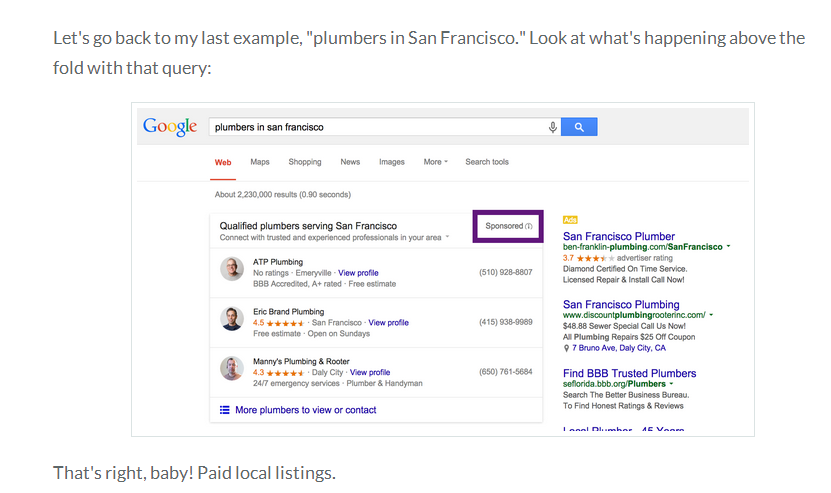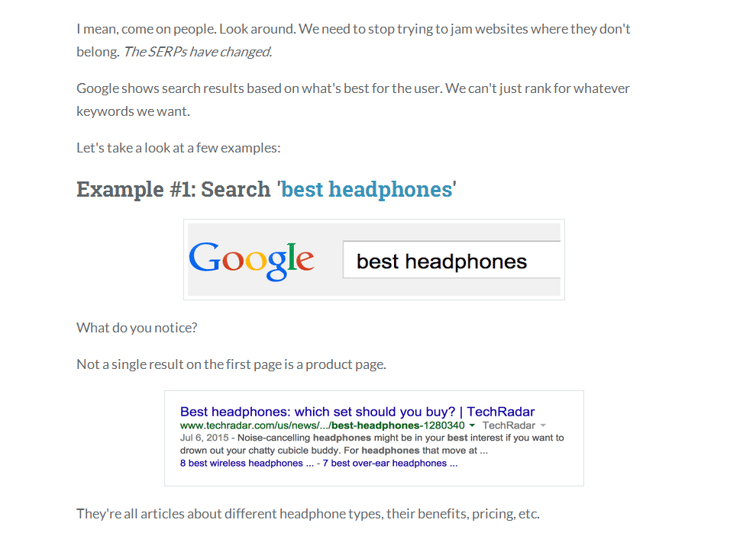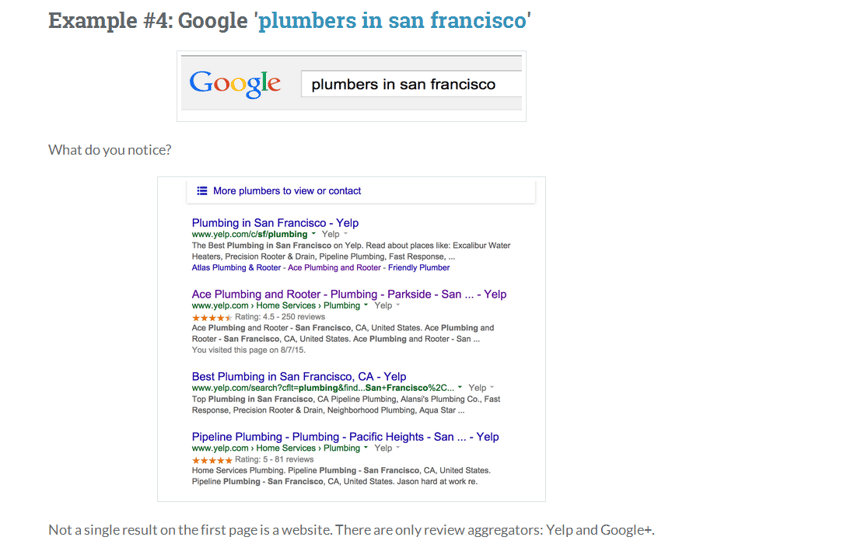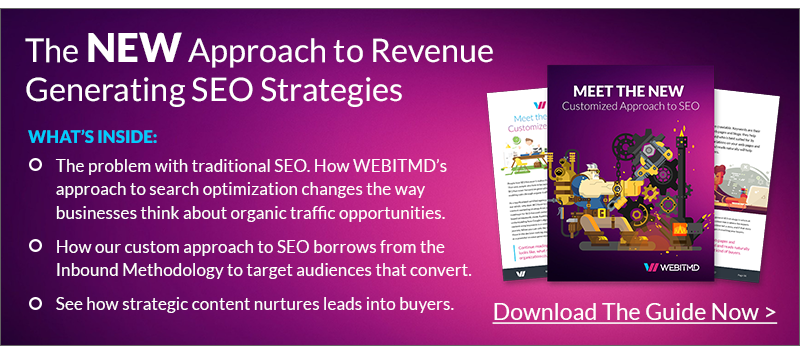SEO: What’s Your Definition?
This is an important question and is fundamental to define for your future organic SEO sales success. The SERPS are changing drastically, and the traditional idea of “get my website to the front page so I can get calls” is just not realistic for most niches any more. The more you understand why these are changing the more you can use it to your advantage.
This article goes on to explain how the search engine results are changing, why they are changing, where your customers are, and what they are using to inform their purchase decisions.
Enjoy.
SEO: The NEW Definition
In reality, SEO is alive and well. Thriving even. SEO strategy used to consist of a narrow offering of strategies that typically only included keywords, technical edits and backlinking. The process has now morphed to include a comprehensive combination of strategies including technical aspects, user-friendly web design, thoughtful conversion strategies, content creation with blog outreach and of course analytic analysis to keep things rolling in the right direction. Phew. A lot, I know. However, too many people still keep SEO in a vacuum.
That’s why I loved reading Ryan Stewarts’ article, “Why I Stopped Selling SEO Services and You Should Too.” Ryan isn’t advocating that we all stop “SEO-ing”, he points out that the once narrow definiton of SEO, has become very broad. The best SEO professionals not only know this, but have actually shifted their offerings to accomodate the changes. So, if you find an agency with the “basic SEO package” – what you’re really getting are out-dated strategies that lead to short term results at best.
The SERP’s Have Changed
Look at this screen shots from Ryan’s article; in the past a headphones seller might choose a keyword phrase such as “best headphones” and could rank their eCommerce site for it by creating backlinks with keyword optimized anchor text. Now, it’s clearly all about the user and Google knows this. What would you rather get when searching for the “best” of something: a list of reviews and comparisons, or a single product page on a seller site? It’s a no brainer.
And here’s another example of a similar change. Results are for the searcher, not the searched. When searching for a service, such as “plumbers in san francisco”, the entire first page is review aggregates. Again, these are results optimized for the user, and results are are not based on keyword specific content or a sites backlinks, no matter how authoritative they may be.
Paid Search Should be Part of an Overall Strategy
In 2014, Google’s ad revenue was almost 60 Billion dollars. Sixty. Billion. Dollars. How much of that was from you? If you said zero, it’s time to get onboard the gravy train. Paid search is now a fundamental part of SEO. We may soon see it dominating in more areas than just the top of results pages. Take a look at this screenshot from Ryan Stewarts’ article:
 The Takeaway
The Takeaway
The fact is, getting ranked on the first, or even second page, of SERPs takes expertise, a full range of strategies that include content, and most importantly…time. It’s like building a house and wanting to be the pride of your neighborhood. You can’t rush the build, slap some cheap paint on the outside, add some shrubs and walk away…at least not if you want longterm admiration. You need a plan; you need a good contractor, an interior designer, and you need to provide for regular maintenance and regularly “freshening” of your style. We all know those houses that still have the seventies shag and smell strangely of grandmas house – if you don’t stay on top of trends and work with an agile agency, you can get very stale, very quickly. The same goes with any website.
If you’re looking for an agile, holistic marketing strategy for your site, send us a chat or give us a call. We can help!







.jpg)



.jpg)





![5 Reports to Elevate Your HubSpot Sales Dashboard [+ Examples]](https://blog.webitmd.com/hs-fs/hubfs/Imported_Blog_Media/6-winning-examples-of-a-hubspot-sales-dashboard-2.png?width=767&name=6-winning-examples-of-a-hubspot-sales-dashboard-2.png)